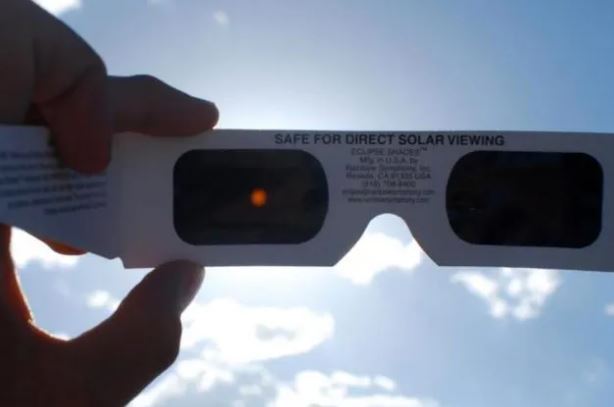
Counterfeit Solar Eclipse Glasses Being Sold Online
As anticipation for the total solar eclipse grows, so do concerns over the proliferation of counterfeit and unsafe eclipse glasses.
The Canadian Space Agency cautions that viewing the sun directly without appropriate protection can lead to significant visual impairments, ranging from partial to total blindness. Experts stress the importance of securing glasses certified by international standards to safeguard the eyes during the eclipse.
A total solar eclipse occurs when the moon positions itself between the sun and the Earth, perfectly obscuring the sun’s light. However, the event begins and concludes as a partial eclipse, with the sun only fully obscured at the peak of the event.
Samir Jabbour, a Montreal-based ophthalmologist and cornea specialist, highlights the danger posed by the eclipse’s partial phases. The diminished UV light allows individuals to gaze at the sun without the usual discomfort, leading to potential eye damage. Jabbour notes that such damage can occur within seconds and symptoms may emerge weeks later, as reported by Global News.
In preparation for a total solar eclipse on April 8, Queen’s University in Kingston has issued alerts about imitation eclipse glasses circulating online, notably counterfeit versions mimicking those sold by Solar Eclipse International, Canada (SEIC). These fakes fail to adequately block sunlight, posing a risk to users.
The American Astronomical Society has also warned about the influx of fake eclipse glasses in the market. Celestial Optical in the U.S. reported that counterfeit copies of their EclipseGuard glasses flooded Amazon.ca, with an estimated 100,000 fake glasses sold before Amazon.ca intervened to remove the listings.
While Amazon asserts its commitment to maintaining a safe marketplace by removing non-compliant products, Health Canada has yet to receive reports of such counterfeit eclipse glasses in the country.
The upcoming total solar eclipse, the first to traverse Canada since 1979, will be visible in parts of Ontario, Quebec, New Brunswick, Prince Edward Island, Nova Scotia, and Newfoundland and Labrador on April 8. Even those outside the path of totality will witness a partial eclipse.
Viewers are advised to use special glasses that comply with the ISO 12312-2 international safety standard, as recommended by the American Astronomical Society. This standard considers several factors, including transmittance and material quality. However, experts warn that counterfeit or fake glasses may falsely claim ISO compliance without meeting safety criteria.








































